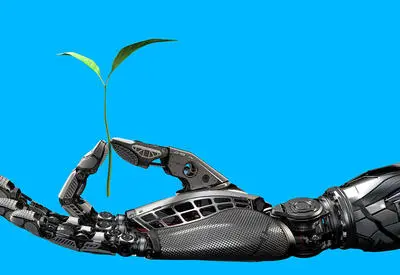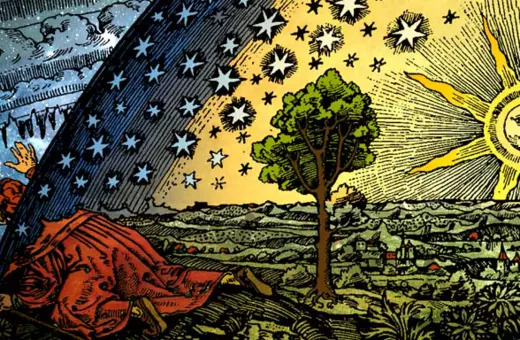How we understand the past goes on to shape our future. Both modernist and postmodernist accounts of history are inadequate and reductive accounts of how the world arrived at its present state. Modernism defends a naïve account of progress as driven by reason and science, and while postmodernism rejects that simplistic story, it falls prey to its own version of cultural imperialism. What we need then is a cognitive history of humanity, one that explains how different cultures, operating under different conceptual frames, saw the world differently, leading them to chart different paths. Only then we’ll begin to recognize our own culture’s conceptual framework, its limits, and the ways it needs revising, argues Jeremy Lent.
The way we interpret history has profound implications for how we understand the present and, most importantly, how we determine the priorities that will decide our future. Modernist interpretations of history, along with more recent approaches colored by postmodernism, are insufficient to provide us with the tools we need to respond to the existential crises our civilization faces this century. For that, we need a new type of history, one that emphasizes the way in which different cultures operate under radically different conceptual frameworks that shape the course they chart.
 SUGGESTED READING
Nature is a jazz band, not a machine
By Jeremy Lent
While we may not always realize how historical interpretations influence our values, their power to do so is enormous, precisely because of its implicit nature. As a teenager, growing up in London in the 1970s, I remember watching TV with my father as we avidly soaked up The Ascent of Man: an award-winning BBC documentary series produced by Dr. Jacob Bronowski. For my father, it was a splendid exposition of how “Man” (there were no qualms in those days about giving humanity a male gender) climbed from peak to peak in his ascent to the pinnacle of modern scientific achievement. In contrast to animals who merely adapt to their environment, Bronowski explained triumphantly, Man is “not a figure in the landscape; he is the shaper of the landscape.”
SUGGESTED READING
Nature is a jazz band, not a machine
By Jeremy Lent
While we may not always realize how historical interpretations influence our values, their power to do so is enormous, precisely because of its implicit nature. As a teenager, growing up in London in the 1970s, I remember watching TV with my father as we avidly soaked up The Ascent of Man: an award-winning BBC documentary series produced by Dr. Jacob Bronowski. For my father, it was a splendid exposition of how “Man” (there were no qualms in those days about giving humanity a male gender) climbed from peak to peak in his ascent to the pinnacle of modern scientific achievement. In contrast to animals who merely adapt to their environment, Bronowski explained triumphantly, Man is “not a figure in the landscape; he is the shaper of the landscape.”
I didn’t know it at the time, but what I was watching was a swansong of the modernist interpretation of history. Underlying the storyline was a cognitive framework that went something like this: the Truth has been discovered by Science, which enables continual Progress resulting from Man using his unique faculty of Reason for the benefit of all. While other cultures might have something to offer, they were generally viewed as complementing the rule of Reason as defined by Western civilization.
The modernist storyline, infused by the discoveries of Europe’s Scientific Revolution, had for centuries inspired historians to extol the inexorable march of progress thatculminated in the glorious achievements of Western civilization. The conquest of nature achieved by science was paralleled by an equally ambitious conquest of the rest of the world by European powers, leading to the decimation of Indigenous populations and the rise of empires that spanned the globe. By the time Jacob Bronowski took the stage, the aftermath of the totalitarian horrors of the mid-20th century had added some ambivalence to the triumphalist storyline, but the core thesis remained the same.
___
The modernist storyline, infused by the discoveries of Europe’s Scientific Revolution, had for centuries inspired historians to extol the inexorable march of progress that culminated in the glorious achievements of Western civilization
___





















Join the conversation